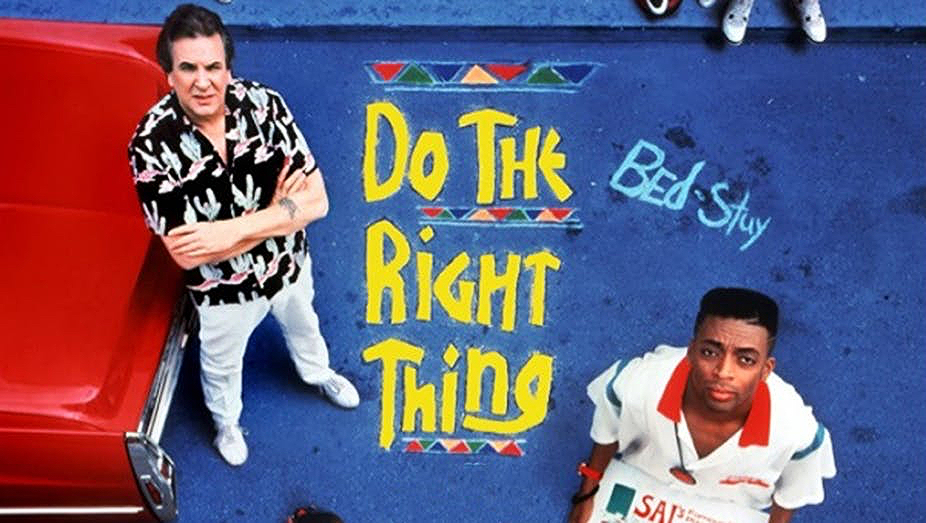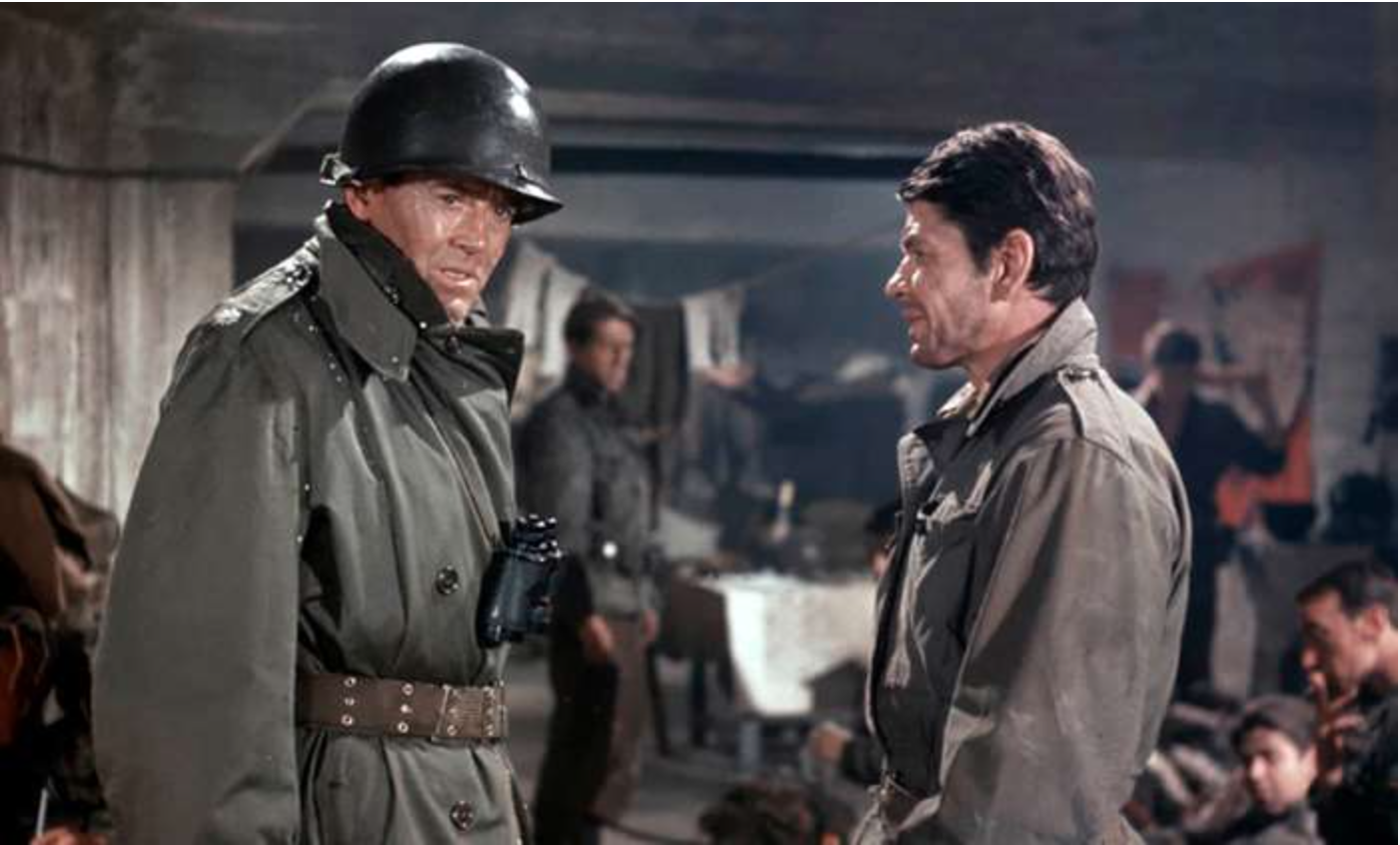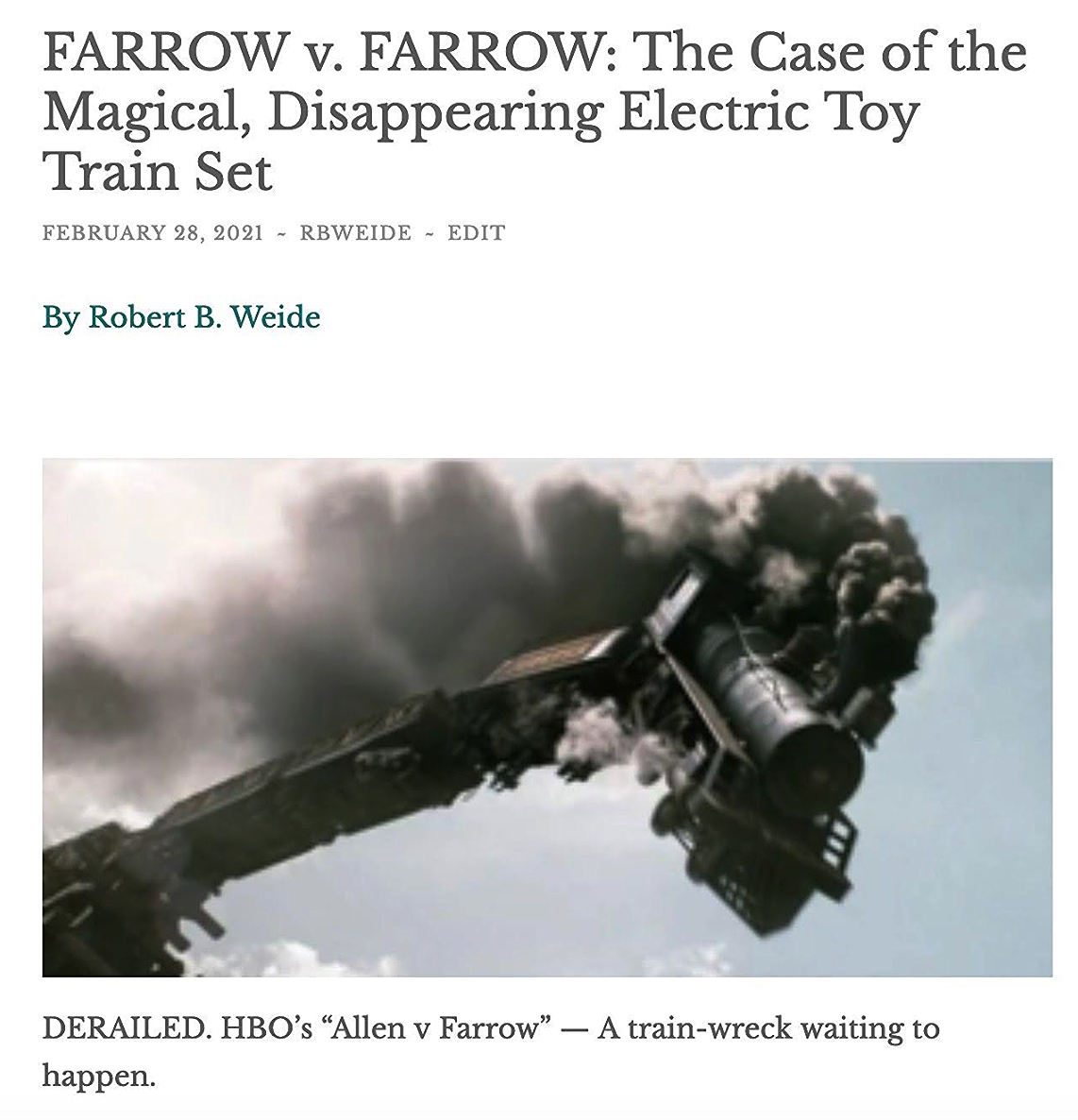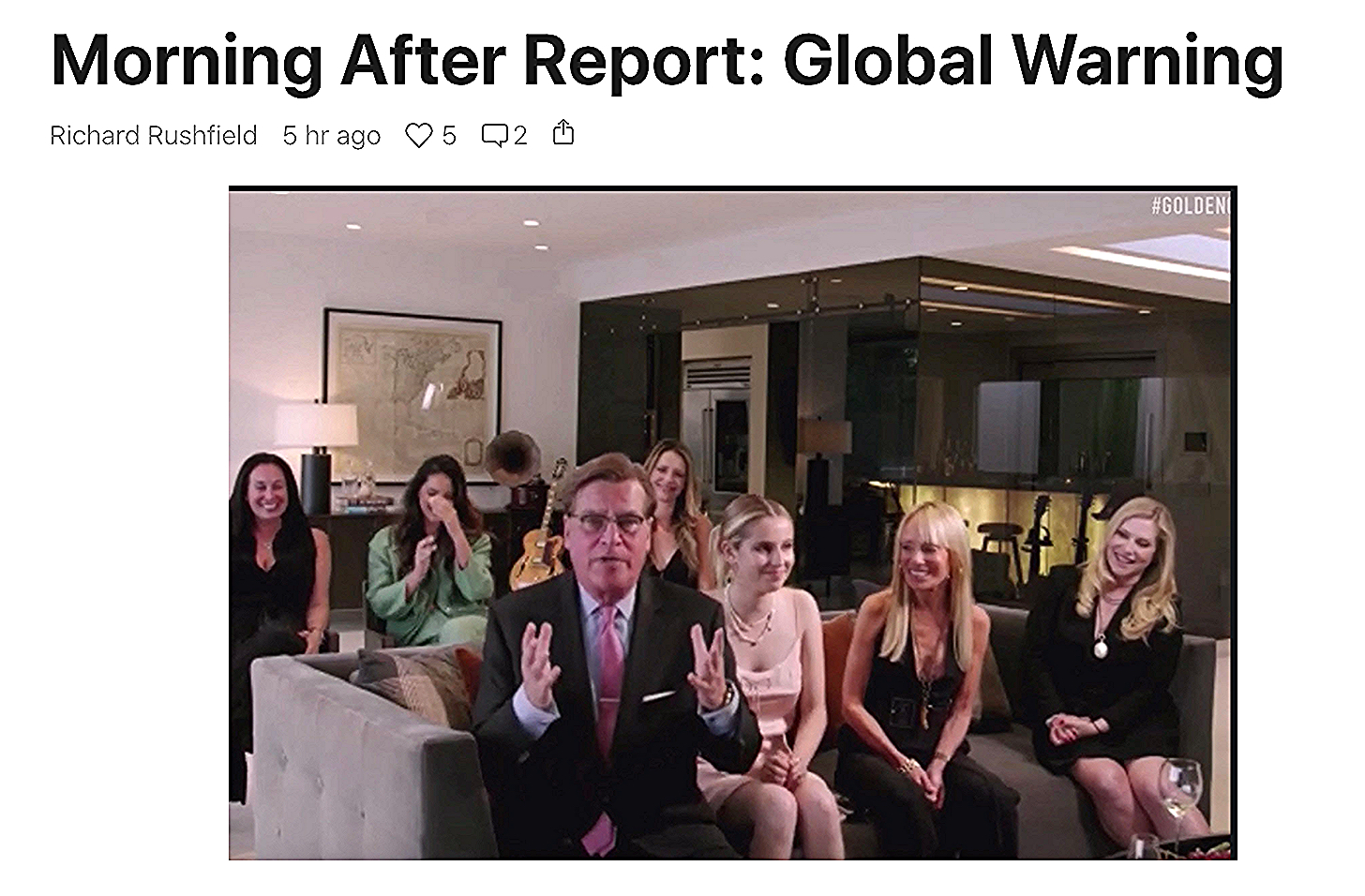Yesterday a much-anticipated retort from Robert Weide, the documentarian and Curb Your Enthusiasm producer who’s been steadfastly defending Woody Allen in the years-long battle with the Farrows (Dylan, Mia, Ronan) over that allegation of child molestation on 8.4.92, appeared.
It deals with the alleged moving electric train set that Dylan described in some detail in a 2.1.14 N.Y. Times article, written by Nicholas Kristof.
Weide’s rebuttal surfaced concurrent with the airing of episode #2 of Kirby Dick and Amy Zeiring‘s Allen v. Farrow, a four-part series about same. On 2.22 or exactly a week ago, Weide accused Dick and Zeiring of either being “half-assed researchers” or “inherently manipulative and dishonest.” He pledged on Twitter that he would explain in due time.
The gist of Weide’s 2.28 argument, directly drawn from testimony from pro-Farrow nanny Kristi Groteke, who was working at Frog Hollow on the day of the alleged assault, is this: There was no electric train, moving or stationery, in the attic that day, but there was a non-electric plastic train toy — something for a two-year-old to push around and play with.
Does this constitute a ‘holy shit!” Perry Mason moment? No, but it does warrant a certain puzzlement.
Weide: “Dylan specifically recalls the train set ‘travel[ing] around the attic.’ Then why does the police diagram show the track having a circumference of only 4 feet at its widest? Maybe Dylan didn’t literally mean ‘around’ the attic, but around in a circle, in the attic? Maybe we should give her the benefit of the doubt here. But the question remains: was there such a functioning train set in that space? Moses says there wasn’t even an electrical outlet in the crawl space. So was the electric train battery-operated? Is there anyone who can untangle this conundrum at the center of Dylan’s accusation?
“In fact, there is.
“Kristi Groteke, a nanny in the Farrow household who was on duty that day, testified in the 1993 custody trial, Allen v. Farrow, from which the HBO series takes its title. Groteke appeared as a friendly witness for her employer, Mia Farrow, and was asked about the content of the attic during direct examination by Mia’s attorney, Eleanor Alter. This means Groteke’s answer would have been known by Mia’s defense team prior to questioning her on the stand. (This is the recollection of a 23-year-old woman, less than a year after the alleged event, versus a woman recounting her memories as a 7-year-old, 23 years after the fact.)
“When asked about the content of the crawl space, Groteke recalls [as follows]: ‘There are some pictures and there is a trunk where things are stored, and there is a train set which the children take out and play with sometimes.’ When asked to describe the set, Groteke replies, “They are big, heavy plastic, green tracks and they fit into each other like puzzle pieces, and the train is a train car that is made for a child to sit on and ride.’ Alter asks, “Have you ever seen the train set in any of the rooms?” Groteke: “Yes. I have seen it downstairs in the living room, but more recently in the past year in Mia’s room and in the children’s room, through the hallways.” Alter: “’So they take it out of the crawl space?’ Groteke: ‘Yes.'”
HE comment: In short, for whatever reason Dylan apparently invented the recollection about a toy train moving around the attic or travelling along an oblong-shaped train track. You can put this down to the occasional vagueness of memory. I would put it down to unnecessary invention, which makes the water seem a bit murky.
A discussion of the merits happened this morning between myself, Friendo #1 and Friendo #2:
Friendo #1: “This doesn’t feel like the smoking gun Weide promised. I had thought, reading his implication, that we were going to discover the police drawing was some sort of fake. He raises an interesting issue, in terms of the nature of the train set. It wasn’t some electric train spinning around; it was larger and plastic — a notable discrepancy. But if anything, his post does serve to confirm that there was some sort of train set in the attic.
Read more








